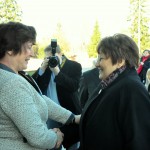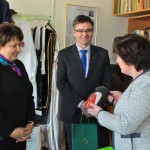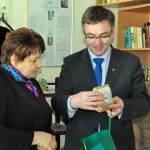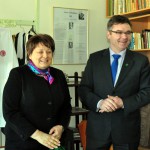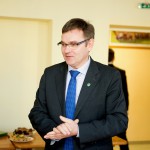The Prime Minister met the leaders of the Rēzekne municipality's educational institutions
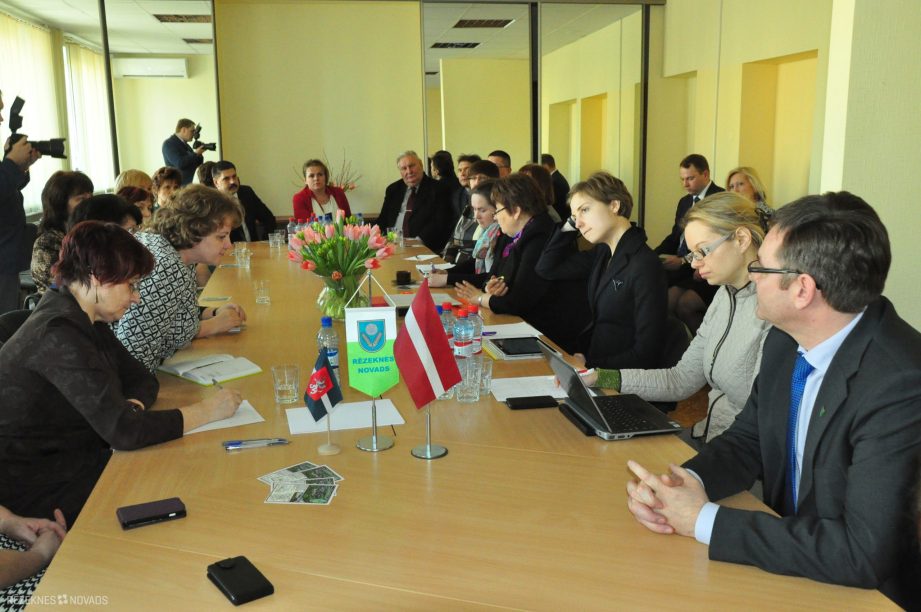
On Friday, March 13, Prime Minister Laimdota Straujuma visited Latgale. As part of the visit, the Prime Minister, with a delegation, visited Nautrēnu High School, where, together with the chairman of the Rēzekne council, Monweed Schwarz, the council of the educational administration and the leaders of the educational institutions discussed the most topical issues in the field of education.
Currently, the teachers of Rezekne municipality are most concerned with the uncertainty about the planned amount of funding for educational institutions and its impact on the development of the school network. Unfortunately, since 2009, the number of schools in Rezekne municipality has decreased from 31 to 17. Already today, pupils are transported on 42 routes to schools in the municipality. Many children have to spend an hour every morning and evening, we can't even increase this time, so the school closure issues can't be on the agenda, "said the President OF the Rēzekne council, Monvīds Švarcs. Prime Minister Laimdota Straujuma agreed:“ until the 6 th class, the school must be as close as possible to the child's place of residence, so small schools, at least as primary schools, will be preserved. ”Monvīds Švarcs replied that schools should still be maintained until the 9 th grade, as primary schools:“ we have repeatedly verified that leaving small schools only until the 4 th or 6 th class is not working because the “brothers-sister principle” is working, that is, parents choose to send children into one school, both because it is more convenient from the point of view of output, as well as parents safer, as the larger can see the smallest brothers or sisters. ”
In continuing the discussion, local government representatives called for the abolition of mutual settlements between local governments, which stipulate that the local government should pay for pupils who have chosen to learn from the educational institution of another local government. This constitutes an unnecessary struggle between municipalities. “For example, the Central School of Currency is just seven kilometres from Nautrēnu High School, so by the time the decision on the introduction of mutual settlement was taken, we had a lot of young people from Caroline,” said Nautrēnu High School Director Anita Zogota, “however, now, municipalities, they have started to choose more than 15 kilometres of Current High School to stay in their own government.” As teachers acknowledged, healthy competition between educational institutions, which contributes to the improvement of the quality of learning, is supported, but not between municipalities for financial reasons.
As regards the quality of learning, the Prime Minister called on educational institutions to prepare not the labour force, but employers: “our country needs new people who are able to make decisions, take responsibility and be knowledgeable enough to ensure that not only ourselves but also others,” said L. Straujuma. “A similar position is also in the municipality of Rezekne,” said M. Schwartz. “By attracting European Union funding, currently four schools in Rezekne are in secondary schools – Nautrens, Maltā, Kaunatā and Dricans – create business contact points that will be a useful spring point for young entrepreneurs.”
At the conclusion of the negotiations, the Prime Minister promised to take into account the proposals heard during the discussion and to ensure that teachers throughout the country enjoy good working conditions and equal pay because, as L. Straujuma acknowledged, quality education is one of the cornerstones of Latvia's growth.
Madara Laksa,
Public relations specialist of the municipality of Rezekne
